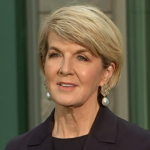Looking forward to a world with Alzheimer’s treatments

As Alzheimer’s cases grow, scientists have been deep in debate over its causes. Now treatments are on the horizon, the new race is to ready the health system.
When the US Food and Drug Administration approved Alzheimer’s drug aducanumab in June 2021 — against the advice of its own expert committee — it triggered much hand-wringing in the research and medical community.
One group of Australian experts likened the drugmaker’s approval by the FDA to “winning a Texas sharpshooter contest by drawing a bullseye around a bullet hole”. The drug mopped up a protein associated with the disease but didn’t appear to improve symptoms.
More than a year later, the discussion has shifted from what has at times been a nonsensical debate on the different theories of what causes Alzheimer’s to other issues such as who should be included in clinical trials, when to intervene and what outcomes should be measured.
Disease-modifying therapies are now seriously on the horizon, with at least one new drug likely to gain FDA approval next year. Delivering such treatments at scale will require a restructure of healthcare delivery.
More than 55 million people live with dementia, a number reported to be doubling every 20 years. Supportive care, the current gold standard in dementia treatment, is costing the world more than US$600 billion a year.
Disease-modifying therapies require in-hospital infusions and regular scans, all of which come at a cost, even without factoring in the high cost of the drugs themselves.
Despite a greater acceptance that late-life dementia is not caused by just one thing and that lifestyle risk factors can have a big contribution, new drug treatments are likely to change who comes forward for treatment.
People are wary of visiting their doctor with early symptoms for fear they will be diagnosed with a disease with no cure. By the time they’re diagnosed, they might have progressed to a more advanced stage. Surveys of GPs in Australia have found few test patients for dementia, largely because their patients don’t want to participate. Drug treatments that hold promise could change this.
With more people seeking treatment, awareness of the need to change lifestyles could also grow. If we view dementia as brain failure, like heart failure, treatment and prevention will shift to be more nuanced. We don’t say there’s one cause for heart failure, or kidney failure or liver failure.
As scientists race against the clock to find new Alzheimer’s treatments, dementia incidence in middle to high income countries is actually declining. But prevalence continues to grow thanks to ageing populations.
That incidence is declining in economically richer countries has been associated with their increased interventions for cardiovascular risk, such as improved diet, reduced smoking and better treatments of hypertension and diabetes.
While treatments are still lagging behind the growth in dementia cases, we have turned a corner. US Congress recently designated a “National Brain Health Day”, and there has been progress in finding agents that look like they’re affecting brain inflammation, opening the door to other new treatments.
As with other diseases, it’s likely there will never be a silver bullet. A combination of therapies, as ended up being the case for the treatment of HIV, could end up delivering the greatest benefit. The focus will be on prevention, prescribing lifestyle interventions, such as diet and physical activity, and then combining these with therapies that remove toxic brain proteins, reduce brain inflammation and, one day, restore brain functions affected by the disease.
Amy Brodtmann leads the Cognitive Health Initiative at Central Clinical School, Monash University, and is a stroke and cognitive neurologist directing cognitive neurology services at the Royal Melbourne Hospital and Eastern Health.
Brodtmann is on Scientific Advisory Boards for Biogen Australia and Roche Australia.
Originally published under Creative Commons by 360info™.
Amy Brodtmann leads the Cognitive Health Initiative at Central Clinical School, Monash University, and is a stroke and cognitive neurologist directing cognitive neurology services at the Royal Melbourne Hospital and Eastern Health. She serves on the Scientific Advisory Boards for Biogen Australia and Roche Australia.















